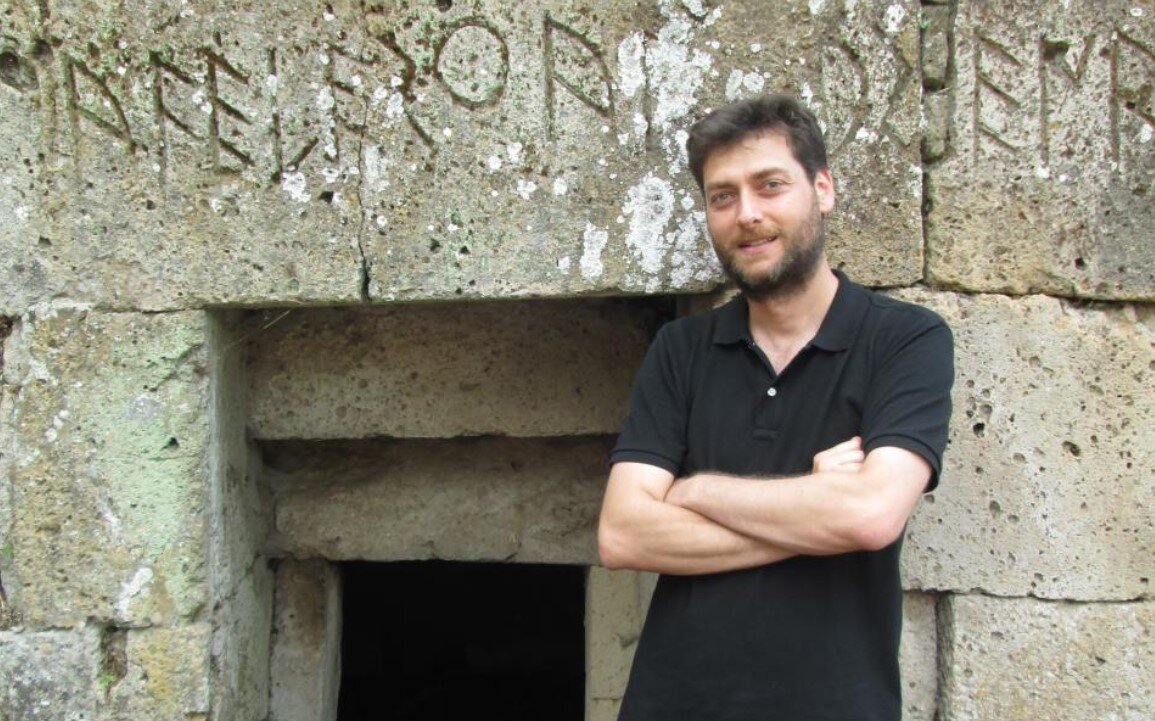
Greece Is the Word
VOL 30
28 SEPTEMBER 2021
Photo Credit: KayMaria Daskarolis
This edition of Greece Is the Word is dedicated to Bill Daskarolis. We are heartbroken. May his memory be eternal.
1.
WOULD PLATO HAVE HAD A TWITTER HANDLE?
"Facebook does not have the intention of promoting morality, and does not particularly seek to educate its users," she writes, "so I think Plato would have disapproved of it for this reason alone."
2.
BRAVO SOU
This edition’s award goes out to Greece for taking on animal abuse.
3.
HE’S BAAAAACK
Mike “Stonie” Woods’ column is back in full effect and bringing you all the good Greek sporting news. If you like to bet on sports, make sure to check out his weekly video series, too.
4.
MYKONOS AND SANTORINI
Six boutique hotels from which to choose.
5.
GOODNESS GREEKNESS
From Kacey Musgraves’ new album to Dimitris Daskalopoulos’s art lift to Jennifer Anniston’s red carpet looks to Yannis Pappas’ comedy to Vera Lutter’s camera obscura, it’s everywhere.
EXCLUSIVE INTERVIEW:
CHRISTOS TSIROGIANNIS
Photo Credit: Christos Tsirogiannis
Christos Tsirogiannis is the antiquities world’s non-fiction mash-up of Sherlock Holmes, Indiana Jones, and James Bond. We are grateful that his parents pointed him in the direction of forensic archaeologist. Christos is on a mission to stop antiquities trafficking on a global scale. (And if his name sounds familiar to you, that might be because we linked to an article about him in our very first edition of Greece Is the Word — scroll to section #6.)
GREECE IS THE WORD: Which Greeks, if any—living or deceased—have impacted your development as a professional and as a human?
CHRISTOS TSIROGIANNIS: I owe everything (upbringing, education, and more) to my parents, Perikles and Athena. My brother Constantinos, in Computing Science, vastly contributed and we managed to publish an academic article together. There is also a close relative, who always wanted to remain unnamed, to whom I owe a lot, in so many ways. Finally, my wife, Helen Van Noorden, who is a British classicist, is my major support in life and I am considering her at least half-Greek, not only because of her academic expertise, but also because she has embraced the ancient and modern Greek culture in so many ways.
Who are you named after, if anyone?
I am named after my paternal grandfather, who was a champion in several sports.
Where did you grow up, and what was that like?
Although I was born in Paris, France, I was privileged to grow up in Komotini and in Volos in Greece. I have the best childhood memories and good friends, some of whom I am still in touch with.
What do you think of when you think about your Greek background? What comes to mind?
When I think about my Greek background, I immediately think what we used to be long ago and where we are now. I feel strongly a responsibility to do my best, especially working, living, and researching abroad, because I owe it to our great ancestors and because in this way I, too, am contributing to the idea foreign people have about modern Greece and the Greeks.
Who are three of your heroes/heroines, and why?
Famous archaeologists who shaped the discipline were always my heroes, like Professor David Gill, Professor Lord Colin Renfrew, Professor Manolis Andronikos, Dr. Neil Brodie, and Dr. Christopher Chippindale, to name just a few. I am blessed to have met all of them and to have published academic work with most of them.
How did you get into your profession?
I owe it to my parents, who first lit my interest in becoming an archaeologist. I was trained as a field archaeologist and worked in excavations for several years, but I found my niche in the research of the trafficking networks of antiquities when I volunteered for more than four years with the Greek police art squad, assisting them in raids throughout Greece and understanding first-hand the phenomenon and the extensive damage that it is causing.
What projects are you excited to be working on now or do you hope to be working on soon?
I am currently at Aarhus University's Institute of Advanced Studies, working on the development of a new method that identifies “problematic”
antiquities (illicit, unprovenanced, looted, etc.). For the future, I am envisaging the creation of a research centre, where the most talented and skilled people from all disciplines would work together in fighting antiquities trafficking on an international level.
What are you most proud of, and why?
For being a member of a large and supportive family, and for the actual results of my work: identifications of illicit antiquities and discoveries of the relevant evidence, which led to the repatriation of these antiquities to their countries of origin, including Greece.
What are you grateful for?
For being born into a loving family, for having two parents who provided me with everything, and for having my own family with two magnificent children, Athena and Minos.
What does the world need now?
Common sense, less talking, and more practical solutions.
Don’t be THAT guy. #maskupforothers #itsnotaboutyou #weareallinthistogether Whether you wear one of ours or not, be safe and considerate to those around you and keep your mouth and nose covered when you’re indoors with others. #maskupforothers #itsnotaboutyou #weareallinthistogether
Want to support the continued production of Greece Is the Word? If so, please (1) share it with your community and (2) become a patron for as little as $5/month:
To share via email, copy this URL and paste it into a new email message: https://www.greeceistheword.co/volume-30-28-september-2021
To share it on Facebook, click here.
To share it on Twitter, click here.
To share it on LinkedIn, click here.
To become a patron of Greece Is the Word (and receive additional fascinating news from throughout the Greek diaspora that’s not published in this newsletter), click here.
Take care of yourselves and one another!
Opa!
Peter and the Greece Is the Word Crew
